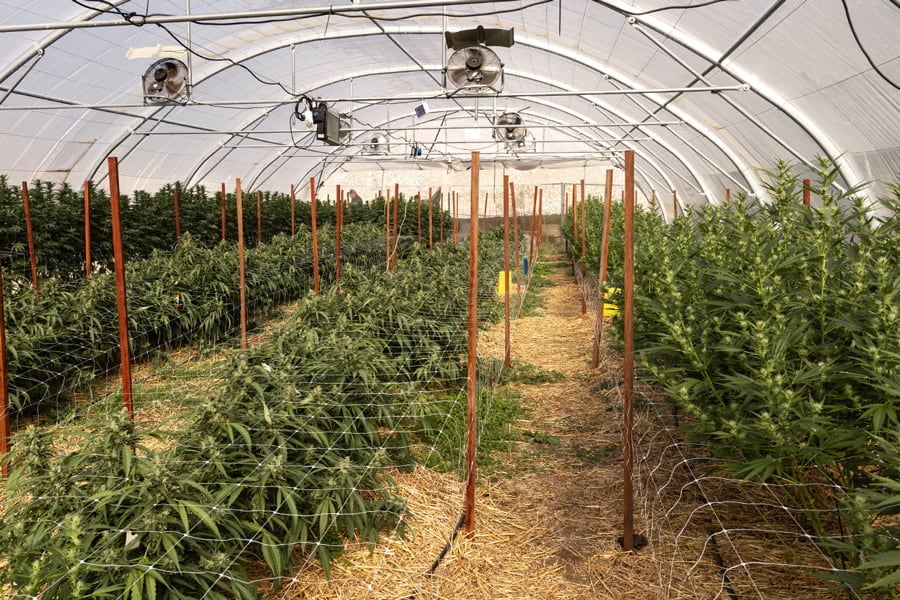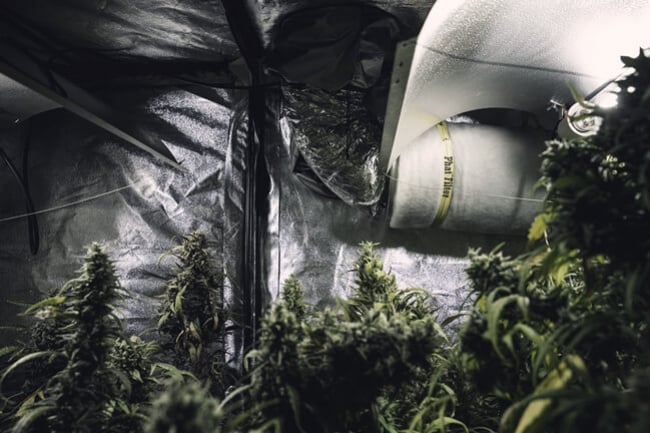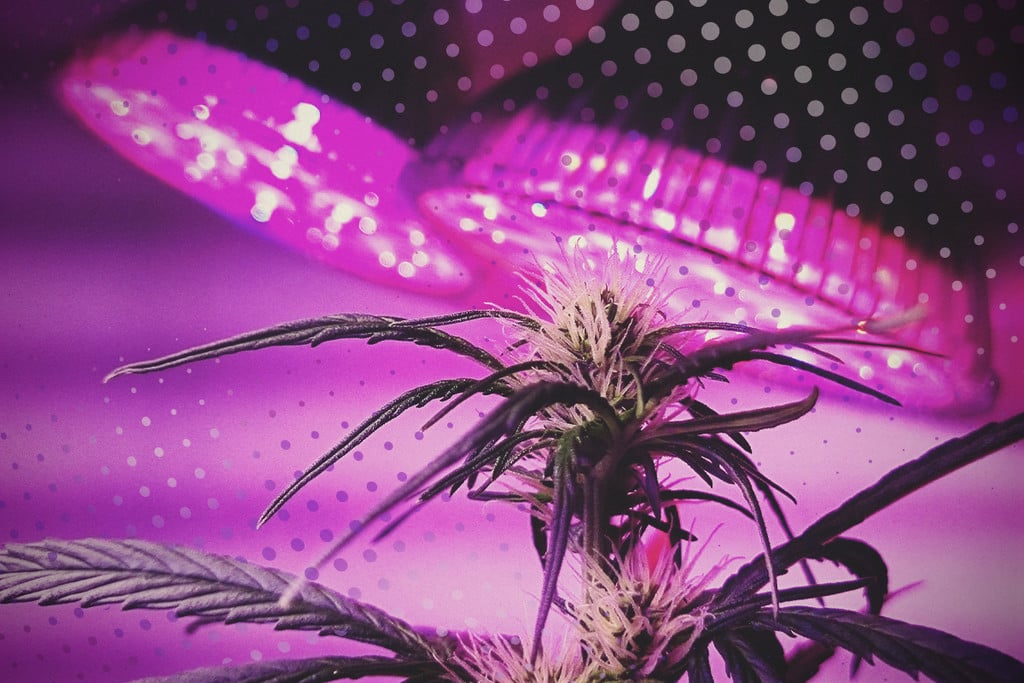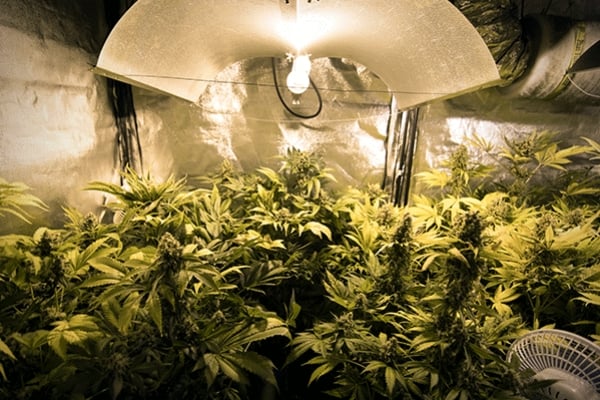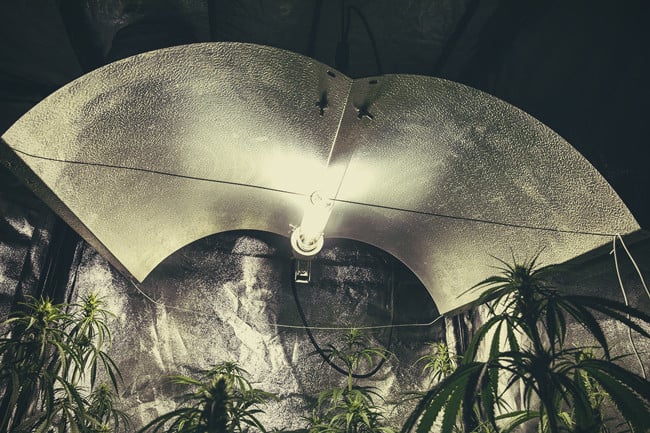.
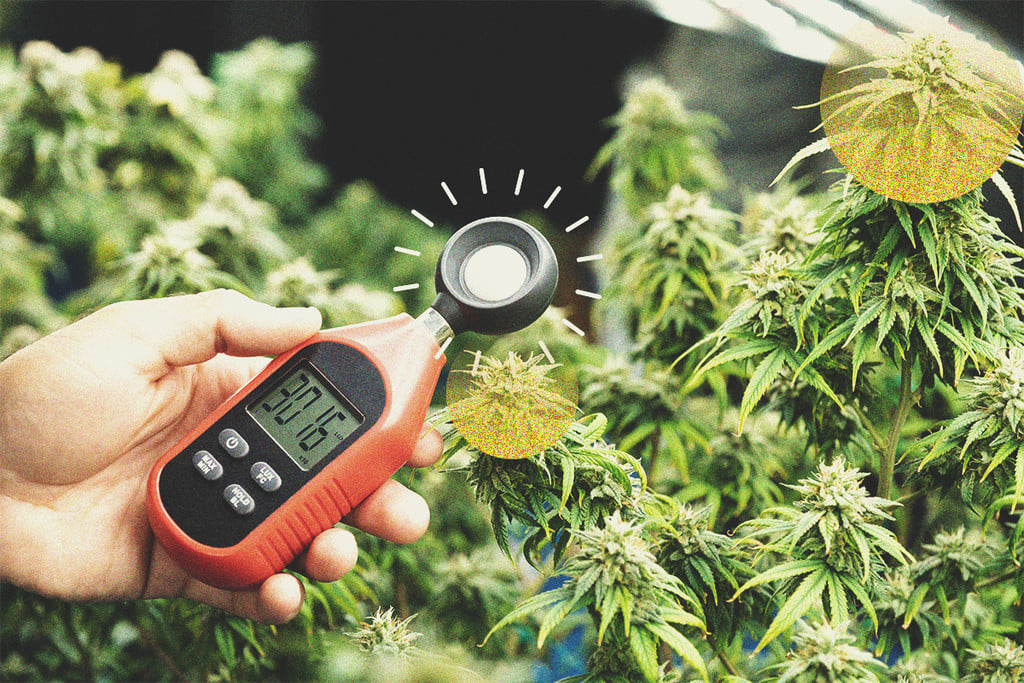
How to Use a Lux Meter to Increase Cannabis Yields
If you want healthy and productive cannabis plants, you need to get serious about lighting! Instead of hanging up a rig and hoping for the best, use a lux meter to know how far to suspend your fixture from your canopy for optimal yields.
Contents:
- Lux and ppfd: the differences
- What is a lux meter?
- The benefits of using a lux meter
- What is the optimal amount of light for cannabis plants?
- How much light do your cannabis plants require?
- Lux for cannabis: how to measure the amount of light your plants are getting
- Lux for weed plants: a note about led
Are you using guesswork when it comes to lighting your cannabis grow? If so, why not use a lux meter to gain more control? This device gives growers an approximation of the amount of light hitting their plants. It won’t tell you everything, but it’ll work better than your eyes alone!
Lux and PPFD: The Differences
Before we dive into the world of lux meters and their utility, it’s important to briefly touch upon an ongoing debate within the cannabis space. Though some cultivators claim to achieve consistent and solid results using a lux meter, these devices have their limitations.
You see, lux serves as a unit of measured brightness as perceived by the human eye. Our eyes are much more sensitive to yellow and green wavelengths of light, as opposed to blue and red. Lux proves useful when it comes to matters involving humans, but it doesn’t tell us much about the intensity of light useful for plants—i.e. the wavelengths that drive photosynthesis.
In contrast, photosynthetic photon flux density (PPFD) measures the amount of photosynthetically active radiation (PAR) light that hits a square metre each second. Therefore, PPFD can inform users about the concentration of useful light their plants are receiving. Measured in units of micromoles, the equation looks like this: μmol/m²/s. Compare this to lux, which only presents a reading related to illuminance based on human perception, and it’s clear that one has more utility within horticulture.
However, instruments used to measure PAR are considerably more expensive, and therefore less accessible to the home grower. While lux meters don’t reveal the density of photosynthetic light, they do come in handy when it comes to light placement—a variable that can make or break cannabis plant health and yield.
What Is a Lux Meter?
As the name suggests, a lux meter is a relatively simple device that measures lux—the unit of illuminance. More specifically, lux meters measure luminous flux per unit area. Luminous flux refers to the perceived power of light. When it comes to cultivating cannabis in a grow tent, the equation looks like this: lux = lumens/m².
Lux meters are a handy tool in a grower's arsenal, but they don’t offer the most appropriate assessment of light output. Whereas lux meters provide data on the intensity of light as seen by the human eye, PAR meters measure how many photons that drive photosynthesis are striking the leaf surface. Clearly, the latter has more of a function within a horticultural context. However, increased functions come with increased costs. Good PAR meters will start at around €230 and can reach over €2,000, whereas growers can get their hands on a rudimentary lux meter for as little as €20.
The Benefits of Using a Lux Meter
So, should you equip yourself with a lux meter? Are these devices a critical piece of kit alongside nutrients and lighting itself, or can you grow just fine without one? Discover the potential benefits of a lux meter below.
Helps to Increase Yield
If you know anything about growing plants, you’re aware of the importance of lighting. But growing good-quality cannabis indoors requires more than hanging up any old light and hoping for the best. Using a lux meter can help you position your grow light at the optimal distance above your canopy. Under ideal circumstances, growers can obtain exact information about correlation distance using a PAR meter or spectroradiometer. However, lux meters serve as the next best thing to achieve relative values according to the human perception of illuminance.
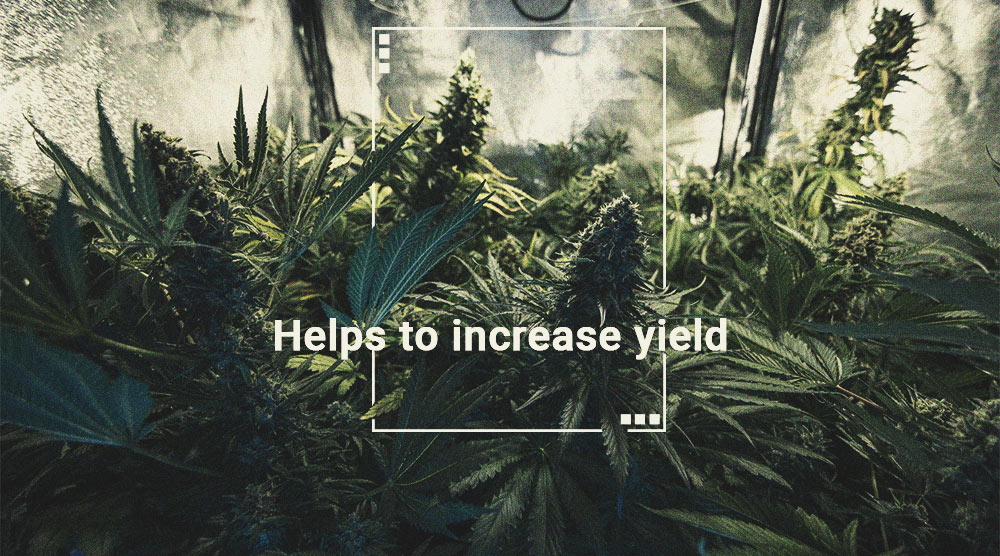
Tells You When You Need to Replace HID Grow Lights
For a minor investment, a lux meter can save you a lot of time, effort, and disappointment. Eventually, certain types of grow lights, including MH and HPS, will lose efficacy. They’ll dip in performance, become increasingly dimmer, and fail to drive photosynthesis as effectively. Rather than sowing seeds and hoping your light has enough juice left in it, you can employ your lux meter before each grow to make sure you don’t run into issues in the coming weeks. Growers make all kinds of investments to ensure their grow runs smoothly. Why not grab a lux meter and make sure your lights are running well too?

Prevents Some Plant Problems
Positioning your light source above your canopy is somewhat of a balancing act. Place it too close, and you run the risk of bleaching and light burn. Suspend it too far away, and you’ll miss out on vibrant, healthy growth. A lux meter will help you nail light positioning, resulting in healthier and more productive plants.

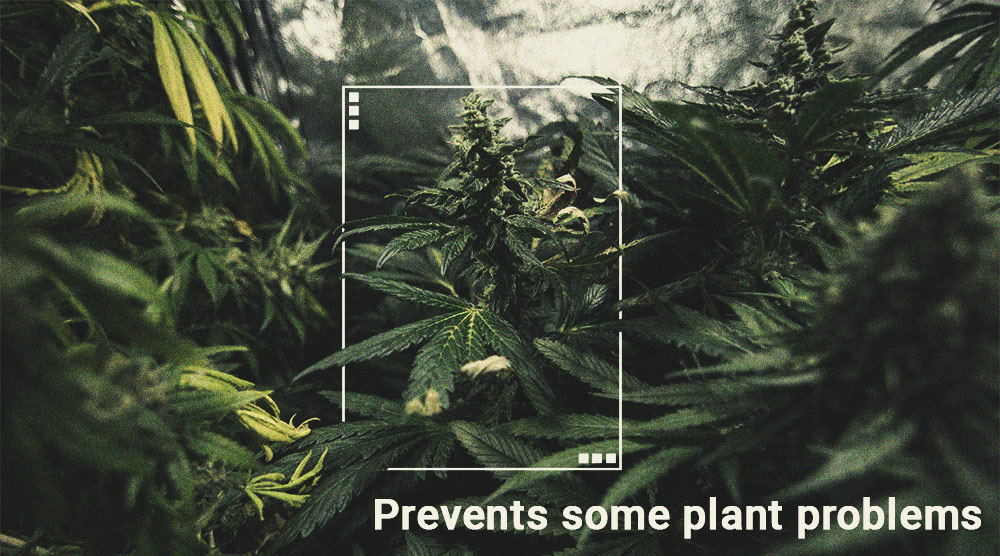
What Is the Optimal Amount of Light for Cannabis Plants?
Cannabis plants have different demands during different stages of the growing cycle; this applies to both nutrition and lighting. Seedlings can’t handle too much light, but too little will result in weak and leggy specimens. Slightly later down the line, during the vegetative phase, plants have a much higher demand for light—a fact made evident by their broad fan leaves. Cannabis also needs plenty of light during bloom to fuel the formation of flowers. However, budding plants thrive under a different spectrum of light than during veg.
How Much Light Do Your Cannabis Plants Require?
Roughly, the lux ranges below are best suited to their corresponding stage of the growing cycle:
• Clone and seedling stage: 5,000–7,000 lux
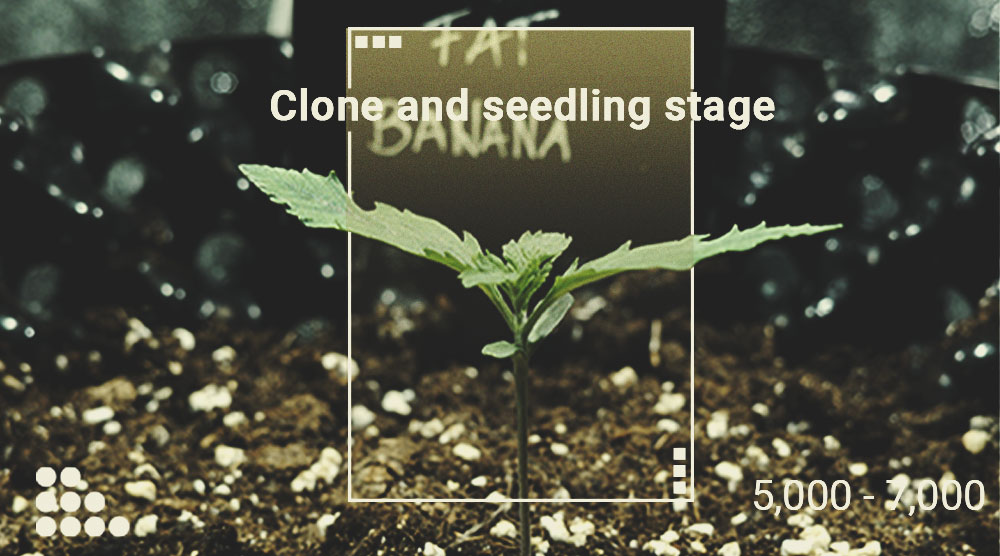
• Vegetative stage: 15,000–50,000 lux
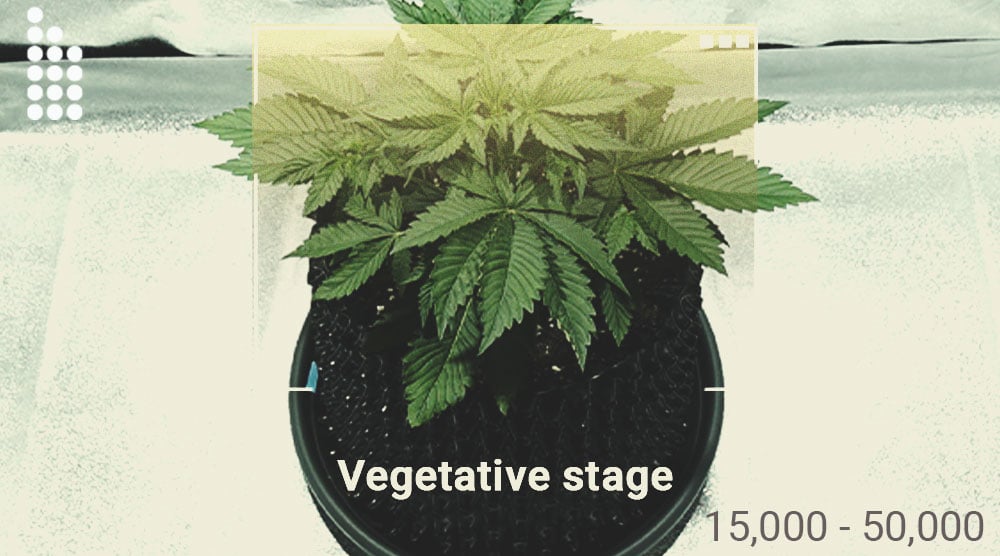
• Flowering stage: 45,000–65,000 lux
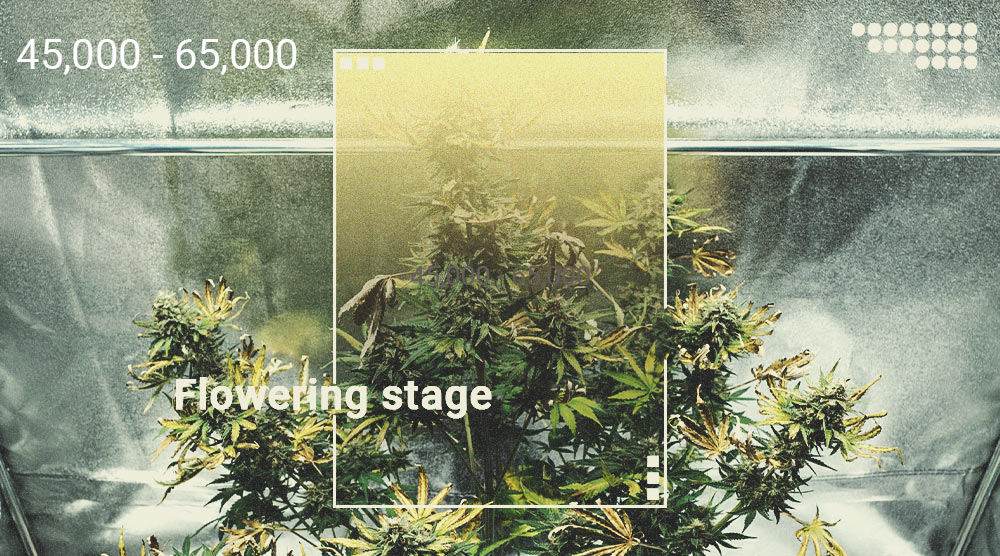
Despite 65,000 representing the roof of recommended lux during the flowering stage, plants can handle up to 75,000 lux before things start to go south. With that said, illuminance values change a lot from one fixture to another; you should view these values as relative and not absolute.
Some growers approach cannabis with a “the more light, the better” mindset. This strategy only pays off until it reaches the 75,000 lux threshold. Light exposure of this magnitude can cause several issues. First, it can inflict light stress, which has the potential to reduce plant health and, subsequently, yield. This phenomenon manifests as dry, shrivelled leaves and bleaching. Second, this level of light intensity will drain your energy bill without actually doing much to increase plant productivity—you will reach a point of diminishing returns.
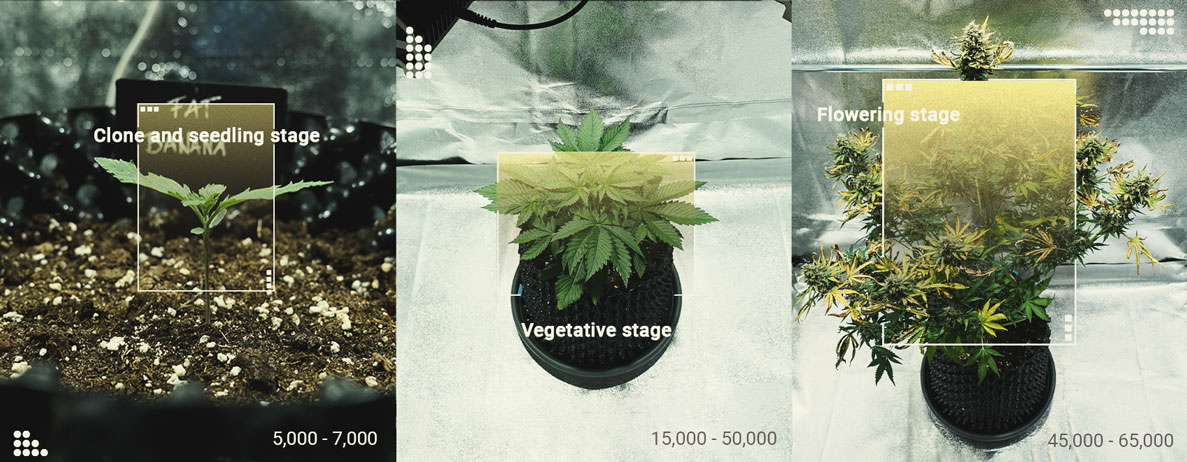
Lux for Cannabis: How to Measure the Amount of Light Your Plants Are Getting
Are you ready to master cannabis lux? Remember, using a lux meter will enable you to determine the luminous flux per unit area—illuminance—that your grow light provides at a certain distance. Using both a lux meter and the figures mentioned above, you can get closer to ensuring your plants receive adequate light exposure throughout the different stages of their life cycle. Follow these steps:
- Take readings across your growing space: Set your light roughly 150cm above the floor of your growing space. Use your lux meter to get a reading directly under the light. From here, measure at different points around the growing space to determine any blind spots.
- Rearrange accordingly: If you’re growing multiple plants, position them in areas that receive the most lux, and avoid areas that are lacking.
- Adjust as you go: Your plant will grow noticeably, week by week. Use your lux meter to determine how much and often you should move your light by taking measurements around the canopy. Use the readings above to make sure you’re fulfilling the demands of the plant during particular stages of growth.
Lux for Weed Plants: A Note About LED
LED grow lights have become a go-to option for many growers, thanks to their reduced heat output and low running costs. However, certain types of LEDs can cause issues when it comes to gathering lux readings. Lux meters are able to give readings for all types of white lights, including HID, CFL, and some LEDs. They are not, however, compatible with purple LED lights. These models emit purple light due to a combination of blue and red diodes. Unfortunately, most cheap LED grow lights use this colour combination. If you’re using purple LEDs, you’ll have to rely on manufacturer information as an estimate of how much light the product emits. If you have the cash spare, you could purchase an alternative light meter compatible with purple-emitting LEDs.


























